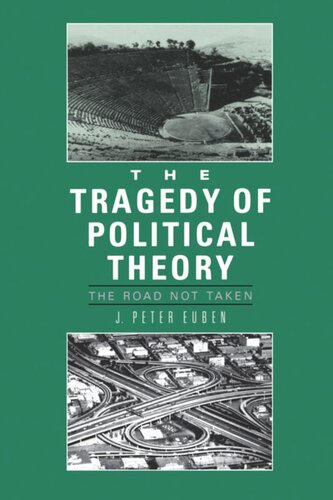

Most ebook files are in PDF format, so you can easily read them using various software such as Foxit Reader or directly on the Google Chrome browser.
Some ebook files are released by publishers in other formats such as .awz, .mobi, .epub, .fb2, etc. You may need to install specific software to read these formats on mobile/PC, such as Calibre.
Please read the tutorial at this link: https://ebookbell.com/faq
We offer FREE conversion to the popular formats you request; however, this may take some time. Therefore, right after payment, please email us, and we will try to provide the service as quickly as possible.
For some exceptional file formats or broken links (if any), please refrain from opening any disputes. Instead, email us first, and we will try to assist within a maximum of 6 hours.
EbookBell Team

4.4
62 reviewsIn this book J. Peter Euben argues that Greek tragedy was the context for classical political theory and that such theory read in terms of tragedy provides a ground for contemporary theorizing alert to the concerns of post-modernism, such as normalization, the dominance of humanism, and the status of theory. Euben shows how ancient Greek theater offered a place and occasion for reflection on the democratic culture it helped constitute, in part by confronting the audience with the otherwise unacknowledged principles of social exclusion that sustained its community.
Euben makes his argument through a series of comparisons between three dramas (Aeschylus' Oresteia, Sophocles' Oedipus Tyrannos, and Euripides' Bacchae) and three works of classical political theory (Thucydides' History and Plato's Apology of Socrates and Republic) on the issues of justice, identity, and corruption. He brings his discussion to a contemporary American setting in a concluding chapter on Thomas Pynchon's The Crying of Lot 49 in which the road from Argos to Athens, built to differentiate a human domain from the undefined outside, has become a Los Angeles freeway desecrating the land and its people in a predatory urban sprawl.